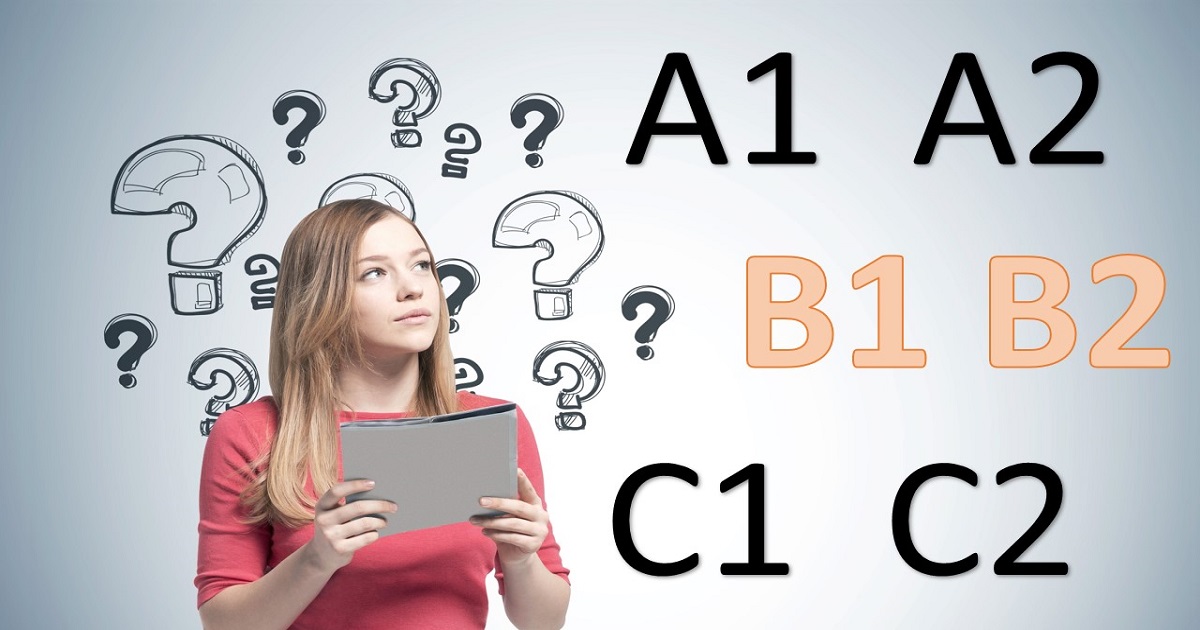Language levels – Dutch B1 / B2 –What do these language levels mean?
In the last couple of weeks I have received a number of questions from students who were thinking of studying with #dutchgrammar, but they weren’t sure what level they were. If you want to know this, you can check here.
But when you know what your level is, it is also interesting to know what that level actually means?
The levels are structured according to the Common European Framework of Reference (abbreviated in English as CEFR).
In my previous blog I explained what A1 and A2 level Dutch mean, in this blog I will tell you what B1 and B2 Dutch are and how you can achieve them.
- B1 – Listening
B1 Listening means that you can understand the main points of clear standard speech on familiar matters regularly encountered in work, school and leisure. You can understand the main point of many radio or TV programs on current affairs or topics of personal or professional interest when the delivery is relatively slow and clear.
- B1- Reading
B1 Reading means that you can understand texts that consist mainly of high frequency every day or job-related language. You can understand descriptions of events, feelings and wishes in personal letters.
- B1 – Speaking
B1 Speaking means that you can present clear, detailed descriptions on a wide range of subjects related to your field of interest. You can explain a viewpoint on a topical issue giving the advantages and disadvantages of various options.
It also means that you can interact with a degree of fluency and spontaneity that makes regular interaction with native speakers quite possible.
- B1- Writing
B1 Writing means that you can write simple connected texts on topics which are familiar or of personal interest. And you can write personal letters describing experiences and impressions.
How to achieve B1 Dutch?
After doing #dutchgrammar-3, you will have the right theoretical basis for level B1. The only thing is that you will need to be able to apply this without thinking.
It is important to understand here that level B1 is very hard to reach if you don’t have practical experience. You cannot acquire every skill during a language course. To reach B1, you need at least 1-2 months of practical experience on this level, from the moment you have completed #dutchgrammar-3.
What is B2 level Dutch?
- B2 – Listening
B2 Listening means that you can understand extended speech and lectures and follow even complex lines of argument provided the topic is reasonably familiar. You can understand most TV news and current affairs programs. You can understand the majority of films in standard dialect.
- B2 – Reading
B2 Reading means that you can read articles and reports concerned with contemporary problems in which the writers adopt particular attitudes or viewpoints. You can understand contemporary literary prose.
- B2 – Speaking
B2 level speaking means that you can present clear, detailed descriptions on a wide range of subjects related to your field of interest. You can explain a viewpoint on a topical issue giving the advantages and disadvantages of various options.
Besides that it means that you can interact with a degree of fluency and spontaneity that makes regular interaction with native speakers quite possible.
- B2 – Writing
If you can write at a B2 level, you can write a clear, detailed text on a wide range of subjects related to your interests. You can write an essay or report, passing on information or giving reasons in support of or against a particular point of view. You can write letters highlighting the personal significance of events and experiences
How to achieve B2 Dutch?
You cannot reach B2 level Dutch just with language courses (unless you are very talented or German is your native language). Otherwise, you absolutely must get a lot of practical experience. And that means that you have to live in a Dutch speaking environment and speak Dutch all the time (with colleagues, family, friends).
For level B1 – you need at least 1-2 months of practical experience on this level, from the moment you completed #dutchgrammar-3.
For level B2, you will need at least 4-6 months of full time practical experience.

Bart de Pau
online Dutch teacher & founder of the Dutch Summer School & Dutch Winter School



